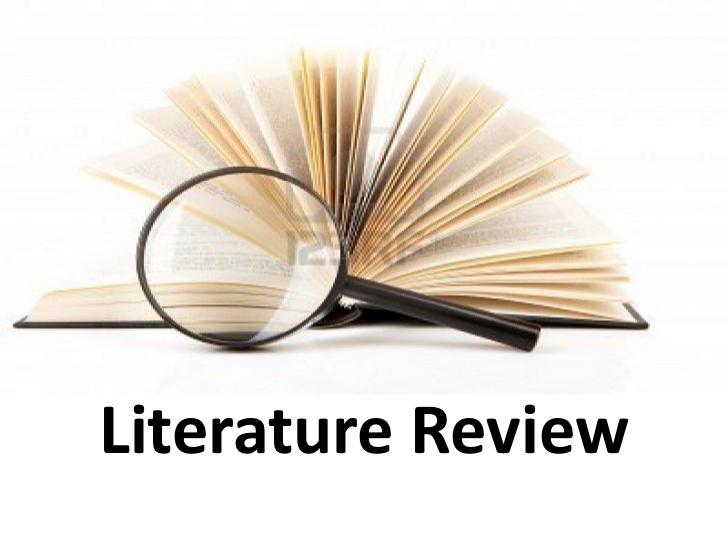A literature review is an essential part of the dissertation writing process, enabling you to present your findings more organized, structured, and professional. You can also use it as your secondary data source for future work.
It is essential to understand the review's purpose before proceeding further with this article:
- To provide an overview of previous research related to your dissertation topic.
- To assess the gaps in existing knowledge and identify ways to contribute new knowledge.
- To help identify potential sources of data for your research project.
The review is most often done after your review of the literature within the dissertation body has been completed but can also be done at an earlier stage.
What Is a Literature Review?
A literature review is a critical and systematic summary of previous research on your topic from relevant sources such as peer-reviewed journals, books, conference proceedings, reports, theses, and dissertations.
The review may range from comprehensive to selective depending upon your research goals, but at a minimum, it should provide an overview of the various perspectives on your topic.
This summary can help you make sense of your research problem, identify critical issues in existing literature, and determine the need for new research.
The review will also give you a chance to integrate across disciplines or areas of expertise to draw upon insights relevant to your topic.
Parts of a Literature Review
A literature review is generally composed of four parts:

1) Situational Context
An excellent place to start when writing a review is with an in-depth description of your research topic in terms of its history, development, state of theory/practice, and current issues.
2) Theoretical Background
It is where you link your topic to relevant theoretical frameworks, models, and concepts in the literature.
3) Review of Empirical Literature
The main body of your review should discuss empirical studies that have been done on the research problem, including the strengths, limitations, and implications of each study.
4) Identification and Analysis of Gaps in the Literature
A literature review typically includes a discussion of gaps in existing knowledge to show how your dissertation project will contribute new knowledge to the field.
You should also discuss issues, theoretical and methodological approaches, future research possibilities, and limitations (including ethical limitations) that you identified throughout your review.
When to Write a Literature Review
Your literature review can be written at three different stages in the dissertation process:
1) Before you have identified all of your sources
You will want to write your review before identifying all of your research sources because it will help you identify new data sources useful for your project.
2) After you have identified all of your sources
Your review will be most useful when you are writing after you have reviewed all of your data but before you begin the process of analysis or interpretation.
3) As part of the literature section in the dissertation proposal--especially when it is included as one of the first chapters
When the literature review is included as part of a dissertation proposal, some advisors recommend writing it before collecting any data.
It will allow you to demonstrate that you have carefully considered all relevant research on your topic and identified ways in which your study will contribute new knowledge.
Below is a comprehensive step to writing a literature review:
1. Highlight the main topic of interest
The main topic is the problem you are researching. It is usually a widely accepted belief, phenomenon, or issue that needs further explanation and analysis.
2. Define your topic and justify your interest in it
Give background information about why you chose this topic by stating what has already been said about it and its importance to the field and society.
3. Arrange the various pieces of information in a logical structure
You can arrange your research paper chronologically, topically, or thematically depending upon what is most effective for your argument.
4. Make sure to include all relevant sources
It is vital to make sure that you only use credible resources when writing your literature review.
5. Avoid plagiarism by using your own words and citing sources when necessary
Instead of simply summarizing what other people have written or said about the topic, you should use your ideas.
The references section should always include complete bibliographic information for each source you cited, even if you did not reproduce passages from that source in your paper.
6. Edit and proofread your work
After you have written a draft of your literature review, edit it for grammar mistakes and errors in spelling or punctuation.
A clean copy is necessary when submitting research papers to academic journals for peer reviews.
7. Read the final draft out loud to yourself to check for errors or awkward sentences
Reading your draft aloud also gives you the chance to check for errors and mistakes that your eyes might be missing.
8. Remember, practice makes perfect!
The dissertation is a big project, so do not get discouraged if it takes some time before you are ready to submit your paper. You should prepare your literature review in advance.
You can also seek guidance from dissertation writing services to help make the process easier for you.
Why Is It Important?
A literature review can be considered one of the most critical components in a dissertation paper. It is essential to demonstrate the student's understanding of his chosen topic.
The dissertation literature review should try to answer two questions:
1) "What has been done on the topic?"
2) "How does this research contribute to the literature in my field?"
A well-written dissertation allows you to:
1) Identify gaps and problems in current research in your field
2) Show your advisor that you have carefully considered all relevant research about your topic and how it will contribute new knowledge or engage established debates. A good literature review will also help your advisor determine whether your project is on the right track.
3) Demonstrate that you understand how, why, and where previous researchers have used certain concepts
4) Showcase the importance of your topic to other disciplines or professions outside of academia
5) Provide a general sense of what direction future research might take for further study on the topic
6) Demonstrate how you will differentiate your dissertation from prior studies and research on the topic. It is crucial to show that your work is original and contributes something new to the existing body of literature.

Conclusion
It is always good to define your topic before writing your dissertation literature review. The topic should have a specific focus and be something that interests you, as it will help motivate you to complete the entire project. Although students usually face many difficulties when writing their literature reviews, following this guide can make your literature review engaging and exciting to read.



